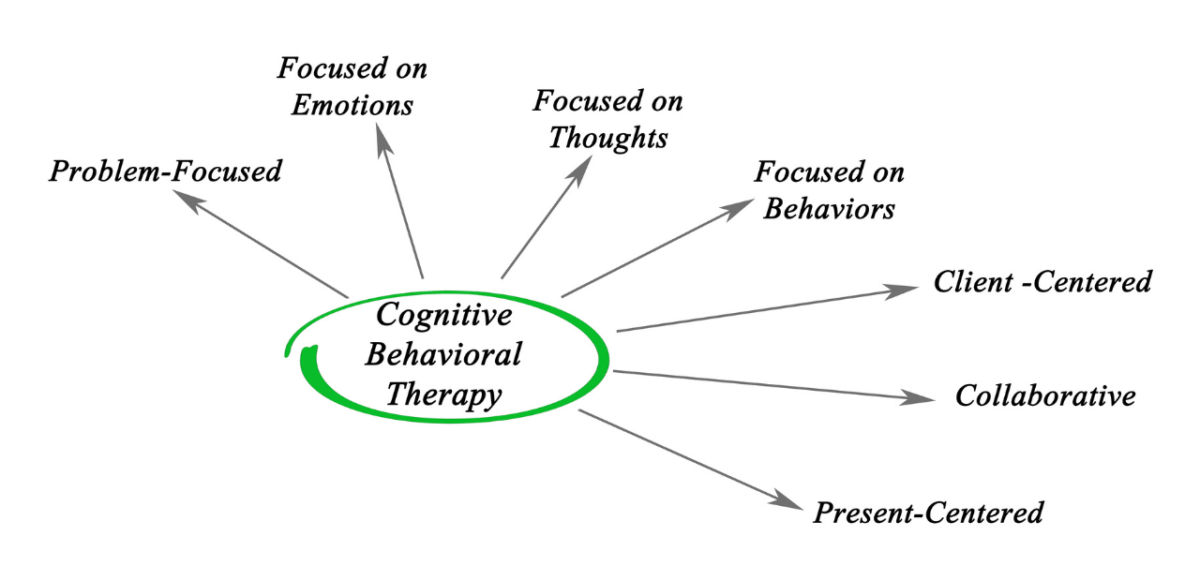
Feeling Anxious or Depressed?
You’re not alone. Anxiety and depression are two of the most common mental health disorders, and are particularly prevalent among seniors in nursing homes and assisted living. The mental strain associated with major life changes can place a heavy burden on seniors and their families.
One way to treat depression and anxiety is through cognitive behavioral therapy (CBT), a type of psychological therapy that can help you reframe your cognitions of the world, and which is used to treat everything from phobias to addiction. But what is cognitive behavioral therapy, and how can it help you?
The “ABCs” of CBT

Cognition refers to the way in which we view our world. More specifically, it’s the way our brains process all of the information our senses take in, which in turn influences our behavior. For instance, have you ever had a really bad morning that just ruined your whole day? Did everything feel like it was going wrong, and even minor things seemed to upset or annoy you?
Perhaps, if you looked at that day objectively, it wouldn’t be that abnormal aside from a single bad experience. However, because you had that bad experience early on, it colored your perception of your whole day. That’s the power of cognition, and unfortunately, it can lead to a painful feedback loop.
Negative experiences cause you to have negative reactions, which can influence your behavior, leading to more negative reactions to otherwise neutral or positive stimuli… or worse, bringing about more negative experiences.
Cognitive behavioral therapy works by breaking this feedback loop, teaching people how to reframe their cognitions. It’s far from a magic bullet, however. CBT requires active participation from the patient, and won’t work if you are unwilling or unable to engage with your therapist.
Cognitive Behavioral Therapy Examples

Even though the uses of CBT are extremely varied, the process is not that dissimilar between conditions. Cognitive behavioral therapy for anxiety and cognitive behavioral therapy for insomnia both focus on the same root problem: thought loops that influence your behavior.
Common conditions treated by CBT include:
- Anxiety
- Depression
- Insomnia
- Addiction
- Phobias
- Relationship Issues
Cognitive behavioral therapy techniques used to treat these conditions include:
- Cognitive Restructuring: Identifying negative thought patterns and reframing them to be more positive and productive.
- Guided Discovery: Talking through your experience and viewpoint, while the therapist asks questions designed to challenge your point of view, such as providing evidence for a negative assumption.
- Exposure Therapy: In the context of fears and phobias, exposure therapy involves encountering the source of your fear in a safe and controlled environment, combined with guidance on coping.
- Relaxation Techniques: Techniques meant to lower stress, like deep breathing, or meditation.
- Role Playing: Acting out a scenario in which you or the therapist take on another role, allowing you to explore your reactions in a safe setting.
Will My Therapist Prescribe Me Medication?

Psychology and psychiatry are two separate though closely related disciplines. CBT falls under psychology, meaning it exclusively focuses on talk therapy. It’s unlikely that a psychologist will give you a formal diagnosis of any sort. Instead, they’re focused on helping you work through mental issues and adopt a healthier outlook. On the other hand, psychiatry is more medicinal in nature: conditions are formally diagnosed, and then medications are prescribed to treat them.
Some patients prefer focusing solely on psychiatry or psychology. Others prefer a hybrid approach, undergoing talk therapy while managing symptoms with medication. The best approach for you depends on your individual condition and preferences.
What If I’m Not Comfortable Talking About My Experiences?

Your psychologist will never judge you, nor will they reveal any information shared during a session unless they believe you or someone else is at risk of harm.
Things like intrusive thoughts of violent or distressing imagery may lead a person to believe they’re insane or a danger to people around them when really the thoughts are a symptom of an obsessive-compulsive disorder: the thoughts recur because you find them distressing. Talking about them with a professional can help you break out of that loop, but the stigma against mental illness prevents many people from ever seeking treatment.
It is also important to note that you will not be ‘committed’ for seeking out psychological help, nor will you have any of your rights violated. What you discuss in therapy is not placed on any permanent record and has no bearing on future background checks or job prospects.
Where can I receive psychological services?

CBT is typically delivered in an office setting, such as a private practice or as part of a larger facility. Certain nursing homes and assisted living facilities may have a therapist on staff, allowing you to receive on-site care.
In recent years, therapists have offered their services remotely via telehealth apps. These services can be extremely helpful for people unable to make the trip to a therapist’s office but are also somewhat limited. Specific cognitive behavioral therapy exercises, such as exposure therapy or in-depth guided discovery, can only be safely performed while the therapist is physically present. As such, it is better for homebound seniors to seek out in-home services if possible. Such services are also more likely to be covered by insurance than popular online services.
If you are looking for a nursing home with on-site psychological services, we can help. Our database has the latest ratings, reviews, and violations for nursing homes nationwide. Enter your zip code to begin your search today.





